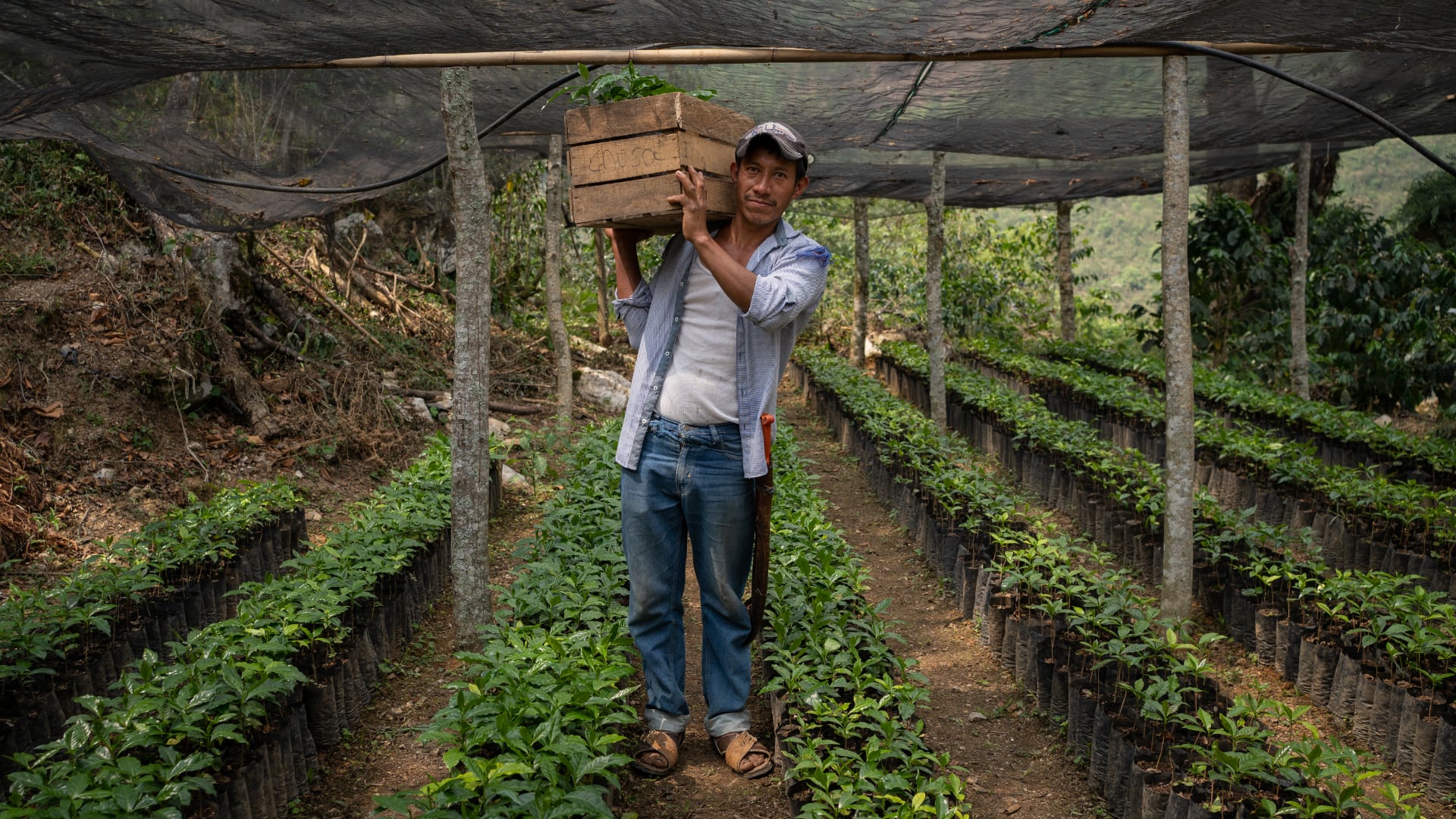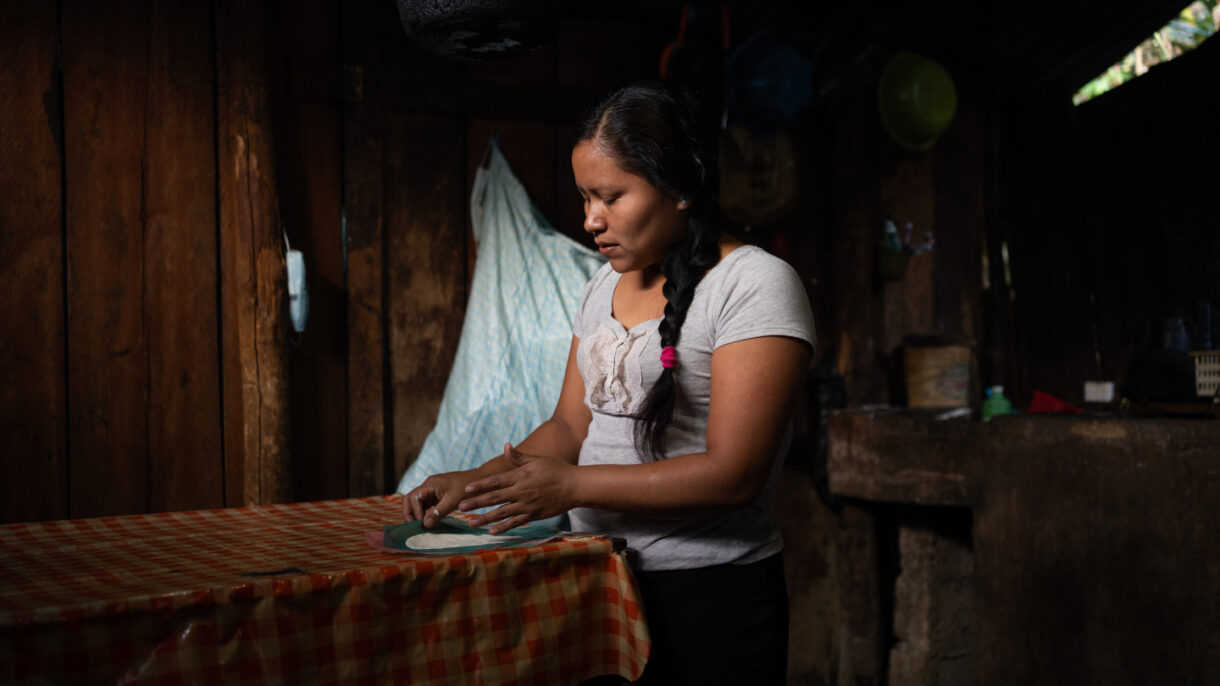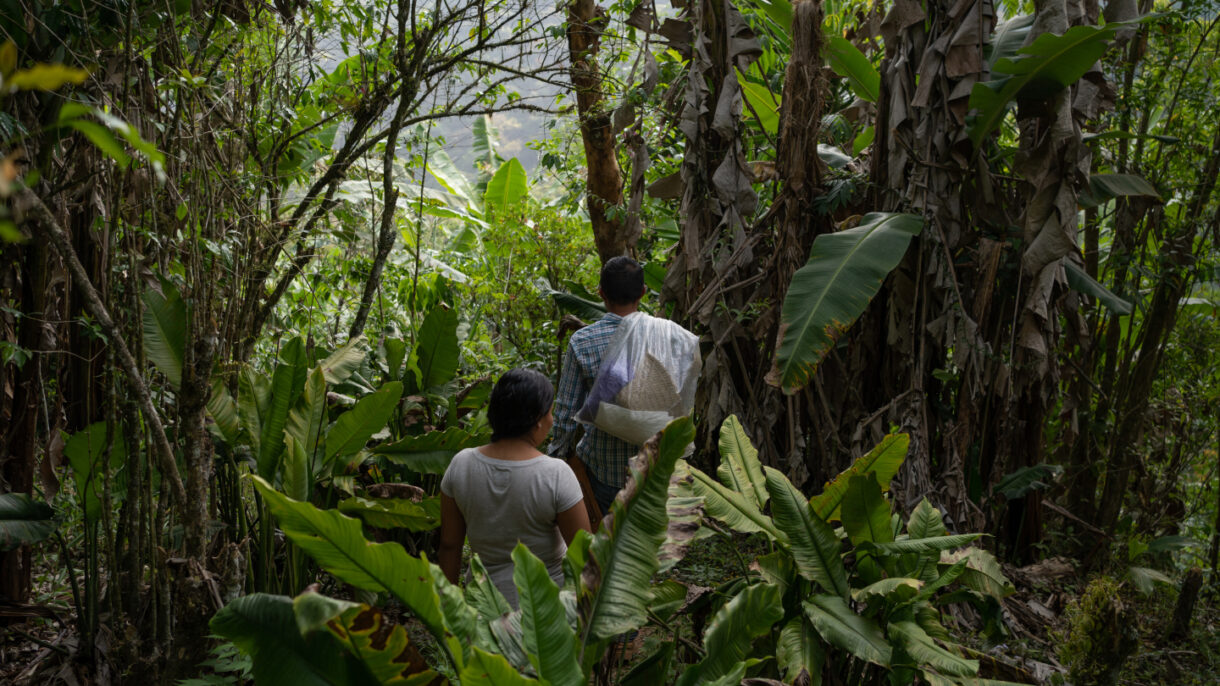Kahlúa achieves coffee supply chain traceability – 100% of its coffee now sourced through “Coffee for Good” project
Kahlúa, the world’s leading coffee liqueur brand, has reached a significant milestone in its ambition to gain transparency and traceability in its supply chain. To achieve this, the brand has mapped all steps of its supply chain to identify any potential risk areas. Today, 100% of its key ingredient, Arabica coffee, has full traceability and is solely sourced from the remote Mexican farming communities participating in its ‘Coffee for Good’ initiative, launched in 2016.

- Extensive coffee supply chain analysis ensures traceability
- 100% of Kahlúa’s coffee sourced through its ‘Coffee for Good’ initiative
- Four communities in Mexico will deliver 300 tons of coffee in record harvest
- Nearly 500 farmers supported to secure a long-term future in coffee farming
Over the past six years, Kahlúa has been working with a local NGO, Fondo Para La Paz in four local communities in the mountains of Veracruz, Mexico. Together, they have been investing in better living and working conditions for farmers, establishing good agricultural practices and protecting the region’s biodiversity. Having nurtured close relationships with farmers, Kahlúa now is confident that its coffee is derived from a more sustainable source.
Kahlúa’s milestone comes with brands and retailers facing mounting pressure from their customers to provide greater transparency into their supply chains. Customers are demanding more information on where a product originated and what environmental impact it has had.
Lynne Millar, Director of Purchasing, Kahlúa, commented: “It’s paramount that we have traceability across our coffee supply chain – not only for our own peace of mind, but it’s essential that we provide the same assurances to our retail customers.”
Having started in Ocotempa, a remote village in the Veracruz mountains, the project focuses on three interconnected themes – social, economic and environmental – to help smallholder farmers move towards a sustainable farming model and improved living conditions.
The project starts by addressing communities’ most basic needs, such as improving access to fresh water and sanitation. Extensive planting is undertaken – replacing old and less productive trees with new disease-resistant plants that are more resilient to climate change. With the advice from experts, the “Coffee for Good” programme has provided nutritional packages and fertilisers to nurture young trees – as well as protect the environment and biodiversity. Establishing strong bonds between villages has also been vital in creating community support and encouraging knowledge sharing.
Since the project began 704 farmers have been trained, 214 dry toilets built, more than 213,500 coffee trees planted and around 70 women are now in leadership roles. The project continues to evolve and the next priority is to certify the work of the farmers and set the standard for two new villages added to the Coffee for Good programme.
Lynne continued: “Sustainability means changing, improving and investing now for the benefit of a greater and more secure future. We have helped farmers introduce techniques and farm management practices that will not only maximise yields and combat climate change but guarantee to preserve the nature and biodiversity of their surroundings.
We have provided training on how to grow and market other crops, in addition to coffee that can help provide an alternative income stream and improve livelihoods by reducing dependence on a single crop. We also wanted our farmers to become more entrepreneurial, which many have and one of our farming families has created its own coffee brand. It is important to us that the farmers don’t sell 100% of their coffee to Kahlúa. We must ensure that they are not wholly dependent on one customer.”
Craig van Niekerk, Global VP of Marketing for Malibu and Kahlúa, said: “We want to go further. Coffee for Good is at the heart of our brand. This year, we have added another two villages to our program, Popocatepec and Mitepec. We are also looking at the potential for youth scholarships at local agricultural colleges. In the past, younger generations have been quick to migrate to Mexico City to seek work but through the project’s success, many younger people believe that there is a future in coffee farming after all.”
To learn more about Coffee For Good: The Promise Behind Our Coffee:
For more information, assets or interview requests, please contact:
theabsolutcompany@mcsaatchi.com
About The Absolut Company
The Absolut Company has the worldwide responsibility for the production, packaging innovation and strategic marketing of Absolut Vodka, Malibu and Kahlúa.
Malibu is the number one rum-based coconut spirit in the world.
Absolut Vodka is one of the world’s top ten international spirits brands. Every bottle of Absolut Vodka comes from one source, Åhus in southern Sweden.
Kahlúa coffee liqueur is the world leader in its category.
The Absolut Company portfolio also includes Åhus Akvavit. The visitor center, Absolut Home, located next to the main production site for Absolut Vodka, was opened in 2018. The head office is located in Stockholm, Sweden. Chairman and CEO is Stéphanie Durroux. The Absolut Company is a part of Pernod Ricard, the world’s second largest wine and spirits producer (source: IWSR).
About Pernod Ricard
Pernod Ricard is the No.2 worldwide producer of wines and spirits with consolidated sales of €10,701 million in FY22. Created in 1975 by the merger of Ricard and Pernod, the Group has developed through organic growth and acquisitions: Seagram (2001), Allied Domecq (2005) and Vin&Sprit (2008). Pernod Ricard, which owns 16 of the Top 100 Spirits Brands, holds one of the most prestigious and comprehensive brand portfolios in the industry, including: Absolut Vodka, Ricard pastis, Ballantine’s, Chivas Regal, Royal Salute, and The Glenlivet Scotch whiskies, Jameson Irish whiskey, Martell cognac, Havana Club rum, Beefeater gin, Malibu liqueur, Mumm and Perrier-Jouët champagnes, as well Jacob’s Creek, Brancott Estate, Campo Viejo, and Kenwood wines. Pernod Ricard’s brands are distributed across 160+ markets and by its own salesforce in 73 markets. The Group’s decentralised organisation empowers its 19,000 employees to be true on-the-ground ambassadors of its vision of “Créateurs de Convivialité.” As reaffirmed by the Group’s strategic plan, “Transform and Accelerate,” deployed in 2018, Pernod Ricard’s strategy focuses on investing in long-term, profitable growth for all stakeholders. The Group remains true to its three founding values: entrepreneurial spirit, mutual trust, and a strong sense of ethics, as illustrated by the 2030 Sustainability and Responsibility roadmap supporting the United Nations Sustainable Development Goals (SDGs), “Good times from a good place.” In recognition of Pernod Ricard’s strong commitment to sustainable development and responsible consumption, it has received a Gold rating from Ecovadis. Pernod Ricard is also a United Nation’s Global Compact LEAD company. Pernod Ricard is listed on Euronext (Ticker: RI; ISIN Code: FR0000120693) and is part of the CAC 40 and Eurostoxx 50 indices.



